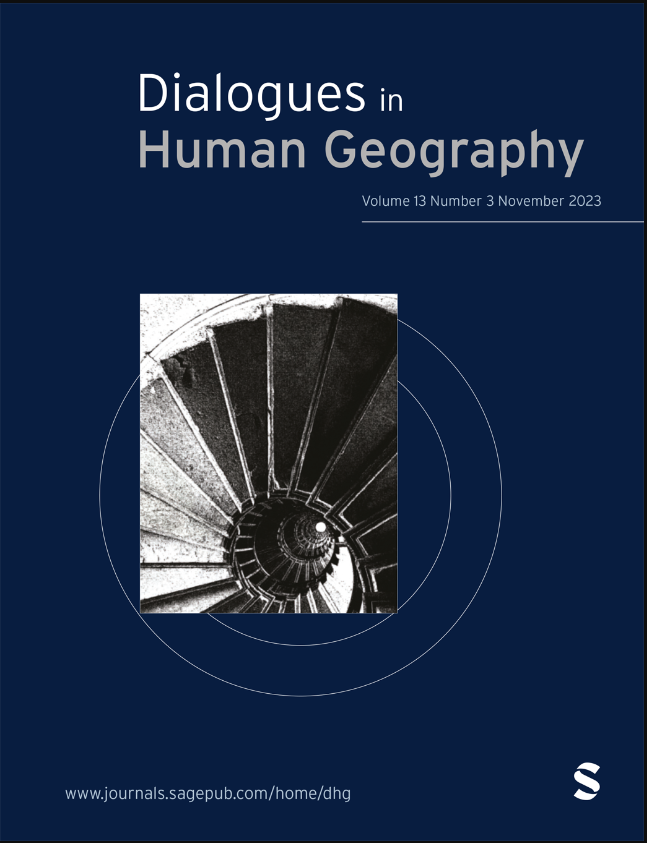居住在扩展区
IF 8.2
1区 社会学
Q1 GEOGRAPHY
引用次数: 4
摘要
在世界上大多数城市的不同方言中,对于他们居住并经常自建的城市正在发生的事情,人们再次感到困惑。房价高得让人无法承受,他们要么被赶出市中心,要么被强烈吸引离开市中心。工作变得越来越临时,如果有的话,而且经常有太多的劳动涉及到维持生活的地方。他们不仅在越来越遥远的郊区和内陆地区寻找负担得起的新机会,而且还在寻找方向,寻找了解事物发展方向的方式,越来越多地在多个地点和隶属关系中对冲他们的赌注。我们这八位研究人员,在过去的一年里,从我们自己的多个方向出发,共同撰写了这篇文章,他们共同思考了城市扩张的多样化轨迹是如何扰乱当前城市建设的逻辑的。我们使用扩展的概念作为一种思考在事物中间运作的方式,作为一种反映和处理这种不安的方式。这种不安扰乱了出发和到达点、运动和定居点、中心和外围、时间和空间的明确指定。本文章由计算机程序翻译,如有差异,请以英文原文为准。
Inhabiting the extensions
Across the different vernaculars of the world's urban majorities, there is renewed bewilderment as to what is going on in the cities in which they reside and frequently self-build. Prices are unaffordable and they are either pushed out or strongly lured away from central locations. Work is increasingly temporary, if available at all, and there is often just too much labour involved to keep lives viably in place. Not only do they look for affordability and new opportunities at increasingly distant suburbs and hinterlands, but for orientations, for ways of reading where things are heading, increasingly hedging their bets across multiple locations and affiliations. Coming together to write this piece from our own multiple orientations, we are eight researchers who, over the past year, joined to consider how variegated trajectories of expansion unsettle the current logics of city-making. We have used the notion of extensions as a way of thinking about operating in the middle of things, as both a reflection of and a way of dealing with this unsettling. An unsettling that disrupts clear designations of points of departure and arrival, of movement and settlement, of centre and periphery, of time and space.
求助全文
通过发布文献求助,成功后即可免费获取论文全文。
去求助
来源期刊

Dialogues in Human Geography
GEOGRAPHY-
CiteScore
8.00
自引率
4.00%
发文量
86
期刊介绍:
Dialogues in Human Geography aims to foster open and critical debate on the philosophical, methodological, and pedagogical underpinnings of geographic thought and practice. The journal publishes articles, accompanied by responses, that critique current thinking and practice while charting future directions for geographic thought, empirical research, and pedagogy. Dialogues is theoretically oriented, forward-looking, and seeks to publish original and innovative work that expands the boundaries of geographical theory, practice, and pedagogy through a unique format of open peer commentary. This format encourages engaged dialogue. The journal's scope encompasses the broader agenda of human geography within the context of social sciences, humanities, and environmental sciences, as well as specific ideas, debates, and practices within disciplinary subfields. It is relevant and useful to those interested in all aspects of the discipline.
 求助内容:
求助内容: 应助结果提醒方式:
应助结果提醒方式:


